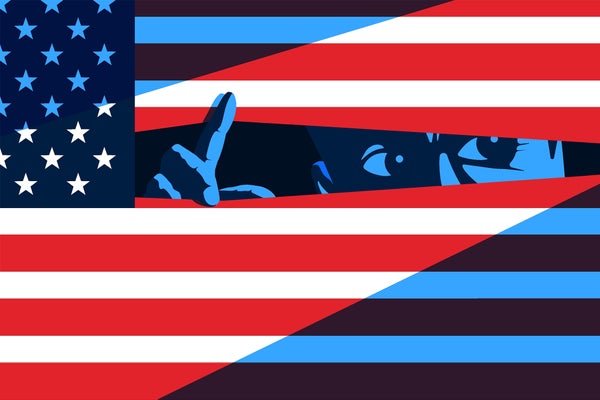February 6, 2024
5 min read
Lost in today’s misinformation fights is the recognition that modern conspiracy theories spring from excesses of state secrecy
From election denial to QAnon, the origins of our age of misinformation too often go unexamined. That’s too bad, because unraveling the roots of one popular conspiracy theory—of a “deep state”—might reveal something important about the cynicism now infecting U.S politics.
In the U.S., the idea of a deep state cabal of unelected officials secretively pulling the strings of American government, is widely believed. One 2018 poll even claimed that a majority of American voters place credence in the theory. This is no fringe phenomenon. America’s democratic political institutions and public opinion are riven by anxieties that have been given voice in the pronouncements of Donald Trump: “Either the deep state destroys America or we destroy the deep state,” he told a rally in Waco, Texas, in March 2023. This was nothing new. As president he frequently deployed the term, often to denounce whistleblowers and leakers from the U.S. intelligence community. Many of the January 6 Capitol rioters were inspired by QAnon conspiracy theories that claimed a deep state was working to undermine President Trump and betray the electorate. If he wins this November, Trump has promised to “dismantle the deep state” by stripping thousands of federal employees of their civil service protections, allowing them to be fired at will.
The intricate apophenia of today’s QAnon-laced cynicism toward the federal government as deep state finds its origins in legitimate public concern about cold war CIA covert operations. Knowing this history offers some answers for today’s conspiracy culture questions.
On supporting science journalism
If you’re enjoying this article, consider supporting our award-winning journalism by subscribing. By purchasing a subscription you are helping to ensure the…
Read the full article here







